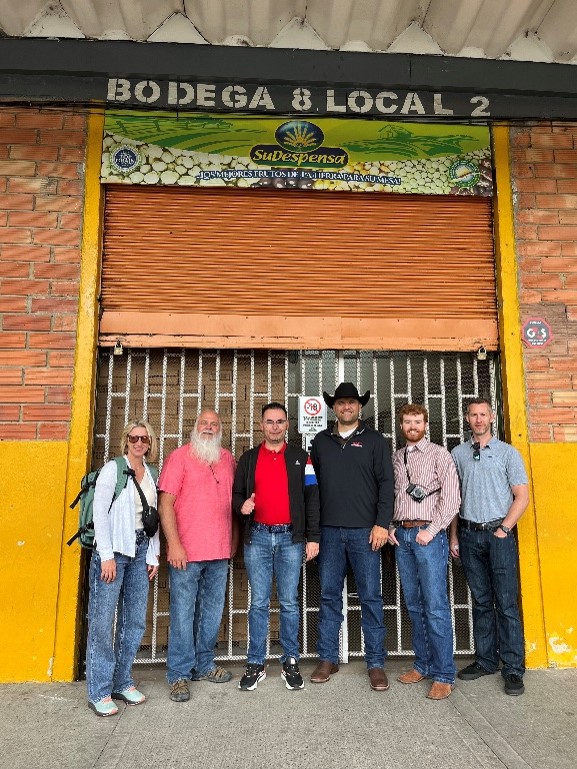Brett McRae, farm broadcaster for Northern Ag Network, traveled to Colombia for ten days in June on an agriculture trade mission.
“The Montana Department of Agriculture and the Montana Pulse Crop Committee organized the trip,” McRae said. “Colombia is the sixth-largest export market for U.S. agricultural products, and the country is an important market for U.S. pulse crops. Montana happens to be the largest producer of pulse crops in the U.S.”
The trade mission was set up to build beneficial relationships.
“We brought representatives of Montana agricultural business with us to connect them with local Colombian buyers at a food show,” McRae said. “We also met with two large grain importing companies already working with Montana pulse crops.”
The team also participated in community service to help promote the benefits of pulse crops during their trip.
“We handed out free lentils and food packages to families at a big marketing event centered around the healthy aspects of pulse crops,” McRae said.
 McRae provided radio and television coverage of the trip while traveling with the group.
McRae provided radio and television coverage of the trip while traveling with the group.
“I got to interview several people while we were down there, and they were impressed with the USDA quality grades for U.S. pulse crops and the research that the Montana Pulse Crop Committee has invested in,” McRae said.
He was able to compare and contrast farming methods for crops while visiting Colombia.
“It was also interesting to see how Colombians cultivate their crops compared to Montana,” McRae said. “They live in a tropical environment with a higher elevation, so they have a completely different approach to farming.”
McRae also got to experience one of the world’s largest open-air food markets.
“I got to see a lot of crops and foods that I don’t normally see,” McRae said. “They had dragon fruit, passion fruit, and other things I’ve never seen. They move 10,000 tons of food daily and handle $25 million in cash. It was interesting to see their food supply chain and how they operated.”
He said that trips like this are important for U.S. crop producers and markets.
“It increases the value of our pulse crops and helps bring more business to the U.S.,” McRae said. “It’s also important for people to go on these trips to experience another country’s culture and to see how they grow their food.”
